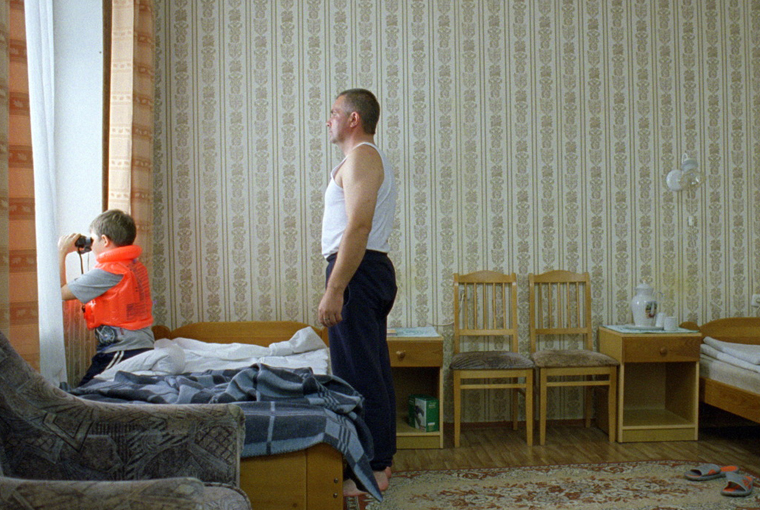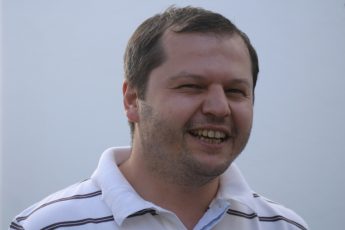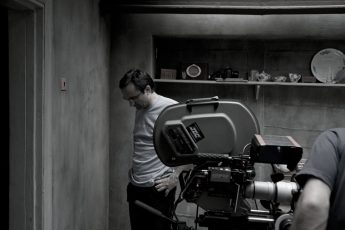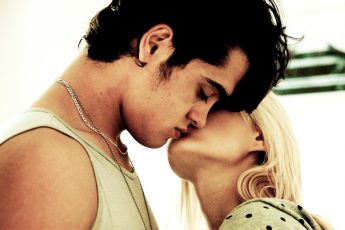Peasant Life on Repeat
Bakur Bakuradze’s The Hunter (Okhotnik, 2011)
Vol. 5 (May 2011) by Moritz Pfeifer
Bakur Bakuradze’s The Hunter seems like a ficticious version of Raymond Depardon’s Modern Life, a trilogy on farming that was screened in Cannes in 2008. With no soundtrack, no professional actors, little dialogue and a minimalist plot, the film depicts the daily life of Ivan (Mikhail Barskovich) as he peacefully runs his pig farm in one of the less populous areas of northwestern Russia.
Ivan has a passion for hunting. As if his life wasn’t already quiet enough, he needs nature’s solitude to think about problems that are hard to read off of his silent face. One of these problems might be his concern about his one-armed son, Kolya, who wants to grow up to become like his father, but who, having only one arm, might not be able to fulfill the manual labor on the farm. In one more intimate scene, Kolya asks his father if it is possible to shoot a rifle with only one arm. Ivan then demonstrates that it is.
Another difficulty in the wilderness is Ivan’s love-life. Only late in the film, we come to realize Ivan’s affection for a prisoner, Lyuba (Tatiana Shapovalova) whom he hired at the beginning of the film. He starts observing the woman, visiting her in different factories where she works making sausages and felt. Ivan then suddenly decides to approach her asking her to come with him. They start a secret affair, meeting in hotel rooms, or in a car. But their embracing seems mirthless. It is closer to people who have just returned from war than of people who have just fallen in love. Why do they fall in love? Out of solidarity, or grace?
Clearly, Bakuradze wants to depict an alternative world, and the spirit of his film is more utopian than its hyper-realistic images suggest. After all, words are not always necessary in love, and the life of someone who wants to be at peace with himself, who has love to give to others, to a prisoner, is a courageous statement to make.
However, the film makes it hard to enter this world. An actor who thinks the things he plays cannot act anything other than a thinking actor. Indeed, we are thus mostly left alone, confronted with a thinking man whose motivations are difficult to see through. Images could have helped here, but moving around in cars or showing procedures of animal slaughter don’t really add to the personality of the character.
If Bakuradze tried to show an alternative world to modern life, a sort of back-to-the-roots manifesto, he might yet be closer to Depardon’s film than he likes. In Depardon’s film, rural life is falling apart en detail. The peasants in Modern Life cannot repeat what they are doing, their children have left, they know that there is a generation gap between them and their children. Bukaradze tries to overcome this and counts on repetition. I wondered whether his son really wants to become like his father, or if he dreams of being somewhere else: at one point he says that he would like to go to war. In the final scene, we see Ivan, alone, hunting with one arm. If Ivan makes this gesture for his son, then he might fear that his son will not be there to do it.




Leave a Comment